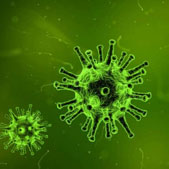Back to all publications...
Is the cure really worse than the disease? The health impacts of lockdowns during COVID-19
During the pandemic, there has been ongoing and contentious debate around the impact of restrictive government measures to contain SARS-CoV-2 outbreaks, often termed ‘lockdowns’. We define a ‘lockdown’ as a highly restrictive set of non-pharmaceutical interventions against COVID-19, including either stay-at-home orders or interventions with an equivalent effect on movement in the population through restriction of movement. While necessarily broad, this definition encompasses the strict interventions embraced by many nations during the pandemic, particularly those that have prevented individuals from venturing outside of their homes for most reasons.
The claims often include the idea that the benefits of lockdowns on infection control may be outweighed by the negative impacts on the economy, social structure, education and mental health. A much stronger claim that has still persistently appeared in the media as well as peer-reviewed research concerns only health effects: that there has been a large toll of death and disease attributable directly to government action against COVID-19, a toll larger than that of COVID-19 itself.1 2 The tagline for this claim is that “the cure is worse than the disease”.3
Here, we consider the claim that lockdowns cause more health harms than COVID-19 by examining their impacts on mortality, routine health services, global health programmes and suicide and mental health. We examine the evidence regarding whether government interventions are to blame for negative health consequences, or whether the lethality and infectiousness of SARS-CoV-2 is as much or more of a driver behind adverse health impacts. The grave harms from ineffectively mitigated epidemics have been clearly seen in places such as India and Brazil.4 Given the benefits from government intervention against COVID-19—slowing spread and preventing COVID-19 deaths—we explore whether the harms of lockdowns are likely to exceed the harms of COVID-19, or if the health harms sometimes attributed to lockdowns may instead be explained directly by the pandemic itself.
Gideon Mayerowitz-Katz, Samir Bhatt, Oliver Ratmann, Jan Brauner, Seth Flaxman, Swapnil Mishra, Mrinank Sharma, Sören Mindermann, Valerie Bradley, Michaela Vollmer, Lea Merone, Gavin Yamey
BMJ Global Health, 2021, 6:e006653
[Paper]

